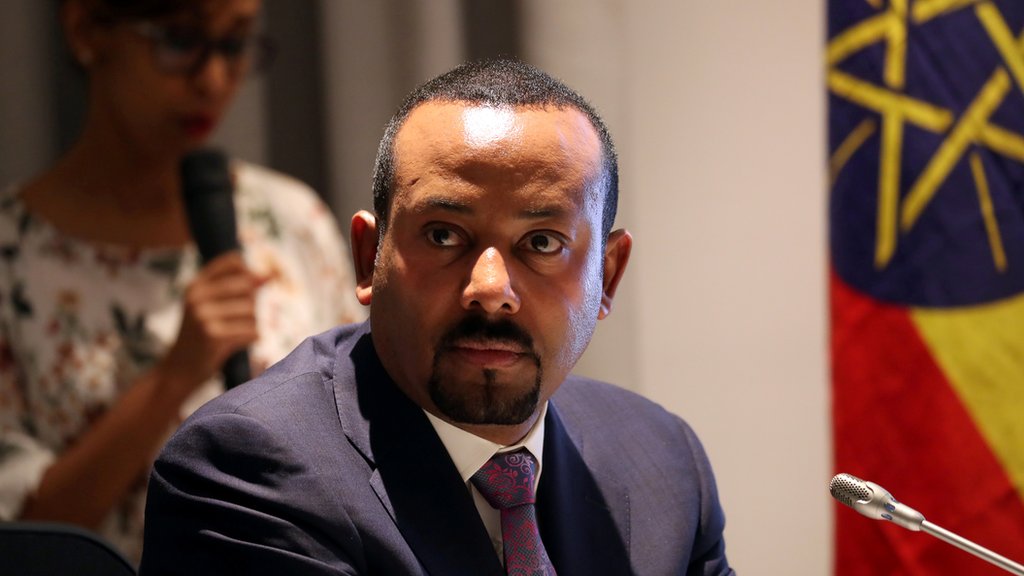
Mr Abiy accused the region’s ruling party, the Tigray People’s Liberation Front (TPLF), of launching the attack.
The attack resulted in “many martyrs, injuries and property damage”, he said in a TV address.
The cabinet has declared a state of emergency in the region for six months.
“This situation has reached a level where it cannot be prevented and controlled through the regular law enforcement mechanisms,” a statement from the prime minister’s office said.
The authorities have also shut down telephone and internet services in Tigray.
Mr Abiy said that attackers “tried to loot” military assets during Wednesday morning’s attacks, adding that “the last red line had been crossed” forcing the federal government into a military confrontation.
Details of the attack could not be immediately verified.
Tensions between the government and TPLF, which used to be part of the governing coalition before falling out with Mr Abiy, have escalated in recent months, with both sides accusing the other of plotting to use military force.
On Tuesday, the federal parliament proposed that the TPLF be designated as a “terrorist organisation.”
In the statement posted on his Twitter and Facebook pages, Mr Abiy said defence forces “have been ordered to carry out their mission to save the country”.
He added: “The final point of the red line has been crossed. Force is being used as the last measure to save the people and the country.”
The Tigray region’s president, Debrestion Gebremichael, told reporters on Monday the government were going to attack – alleging it was punishment for organising its own election for the Tigray parliament in September, in direct defiance of the federal government and electoral board decision to postpone all elections.
The government has described the vote as “illegal”. The national electoral board has since said the general election should go ahead in May or June of next year.
The Tigrayans held most of Ethiopia’s political power from 1991 to 2018, when Mr Abiy came to office. Since then, their power has waned.
Mr Abiy, who was awarded the Nobel Peace Prize in 2019, is facing increasing criticism from a number of sides, with some accusing him of locking up those who oppose his government.














